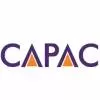Govt's EV push?FAME II ends Mar 31, FAME-III likely in July budget

Blum India brings Design Reverie to Hyderabad
Blum India hosted the Hyderabad edition of its signature event, Design Reverie, at the historic Taj Falaknuma Palace, making it a memorable evening for the city’s architecture and interior design community. As per news reports, the event combined modern design sensibilities with the grandeur of a palace setting and the spiritual charm of Sufi qawwali.This marked the third edition of the event, after previous gatherings in Delhi and Bangalore. In Hyderabad, the focus was on fostering relaxed yet meaningful dialogue among design professionals—away from the typical conference setup. The eveni..

Hafele launches Platinum Studio in Nagpur
Hafele has expanded its franchise footprint in central India by opening a new Studio Partner Platinum showroom in Nagpur in collaboration with Onkar Furnitech. The studio was inaugurated by Nitin Gadkari, Minister of Road Transport and Highways, along with Padma Gupta, Director – HR & Customer Experience, Hafele South Asia.Located at Sarthak Plaza, South Ambazari Road, Laxmi Nagar, the showroom offers an immersive experience of Hafele’s wide-ranging interior and home solutions. Designed as a hands-on, real-life application space, the studio showcases Hafele’s full portfolio—includi..

Truflo by Hindware wins GPTW honour again
Truflo by Hindware has been certified a Great Place to Work for the fourth consecutive year, reaffirming its commitment to a people-first culture. The certification was awarded by the Great Place to Work Institute following a rigorous evaluation of employee experience, leadership, culture, and HR practices.Known as India’s fastest-growing plastic pipes and fittings company, Truflo has focused on fostering an inclusive, innovative, and growth-driven work environment. The company prioritises employee well-being and professional development, creating a culture where people feel valued and empow..














